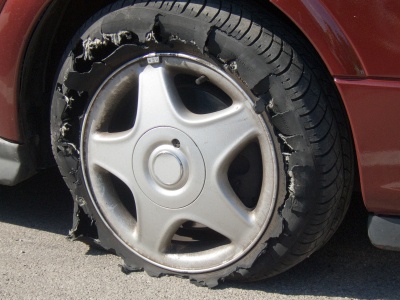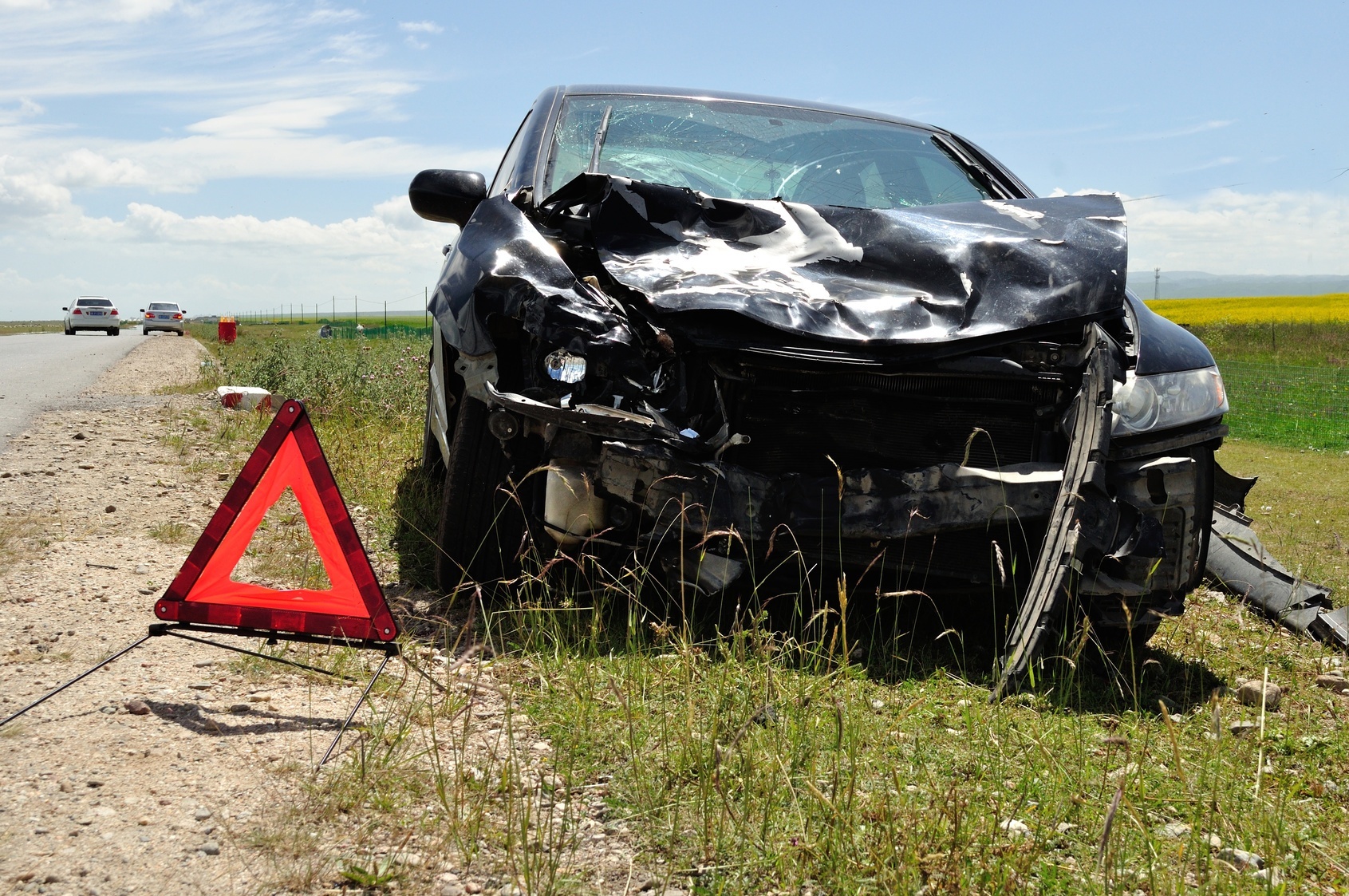Understanding the most common reasons why you or someone would lose control of a car may help prevent car accidents. Auto accidents can happen to anyone, even you, so it’s important to be educated on how crashes happen.
Some of the most common causes of car accidents are mechanical failures. A mechanical failure is when a part of the vehicle fails and is not up to standard with the car manufacturer.
Top Mechanical Failures that Cause Car Accidents
Although modern vehicles are manufactured with strict safety standards, car accidents due to mechanical failures still cause injury and death. While the vast majority of auto accidents are due to decisions made by drivers, mechanical failure is still a direct and indirect cause of accidents. These are the most common mechanical failures that cause car accidents:
1: Wheel/Tire Failure
Tire failure is one of the most common causes of a car crash due to mechanical failure. According to NHTSA surveys, tires and wheel-related problems were responsible for 35% of all accidents due to mechanical failure. Two of the most frequent types of problems with tires are tire blowouts and worn tires.
- Tire Blowouts: Blowouts can happen for a number of reasons, such as a worn-out, under- or over-inflated tire suddenly bursting under pressure, tires being punctured by debris in the road, or even sudden, severe temperature changes. Tire blowouts drastically reduce your ability to control the vehicle all at once, causing crashes.
- Worn Tires: Over time, tires will start to wear thin, losing their tread. Worn tires are more likely to slip, take more distance to brake, and aren’t as responsive because of their weak grip on the road. This can be a major problem on the road, as it compromises tire grip—and can result in your car hydroplaning in inclement weather (snow, rain, etc.). Hydroplaning, also known as aquaplaning, occurs when your vehicle’s tires lose traction and cause your car to slide uncontrollably on the wet road. Losing control of the car due to hydroplaning can be a major cause of car accidents in Florida during the rainy season, so it’s important to get your tires checked before those months.
Replacing tires before they completely lose their tread and maintaining optimal tire pressure are musts for preventing these mechanical failures on the road. Also, regularly check your tire alignment, since poorly aligned wheels wear tires out faster.
2: Brakes
Bad brakes are a major factor in rear-end collisions, where the inability to stop in time causes a vehicle to ram right into the vehicle in front. The same NHTSA survey reported brakes as responsible for 22% of car accidents due to mechanical failure.
Common contributing factors to brake-related car accidents include:
- Faulty/Worn Brake Lines. Leaks in brake lines may allow brake fluid to drain away, compromising brake performance.
- ABS Malfunctions. An Antilock Brake System (ABS) is designed to automatically prevent the wheels from locking up when drivers hit the brakes hard—preventing slipping and loss of control. ABS malfunctions can compromise braking performance.
- Worn Brake Pads & Discs. The brake pads and discs in your car wear out a little bit more with each and every use. Over time, this wear makes it harder to stop your vehicle, resulting in longer stop distances and increased accident risks.
Preventing this issue takes regular maintenance and inspection of your vehicle’s brake systems. Have a thorough inspection done at least once every 30,000 miles—this is the typical minimum lifetime of brake pads.
Most mechanics will tell you if they see that your brake pads are wearing thin or if you have other brake-related issues when you take your car in for servicing.
3: Steering and Suspension
The third most common critical reason for a car accident cited in the NHTSA report was a combination of “steering/suspension/transmission/engine-related problems.” This combination category accounted for just 3 percent of the traffic accidents cited in the report.
Part of the reason why these mechanical failures are rarely cited as the critical reason for a car accident is that they’re harder to document and identify post-crash. Blown tires & worn brakes are easy to spot, but problems with the suspension caused by wear and tear are harder to sort out from the damage incurred in the crash.
Steering and suspension problems can cause a loss of control over your vehicle at inopportune moments. Transmission and engine problems could keep you from being able to accelerate quickly if the need arises—leaving you stranded in an intersection with oncoming traffic and at risk of a car accident.
Routine vehicle maintenance is the best way to prevent steering and suspension issues that could contribute to a car crash. If your vehicle’s due for a full inspection, it’s important to have that inspection done and get a report so you know if there are any issues with your steering, suspension, transmission, or engine.
It may pay to ask your mechanic if they’ll give you a free OBD-II system check. This is a check where the mechanic hooks up your vehicle’s onboard diagnostics system to a specialized computer to check for certain error codes.
4: Headlights/Taillights
In low-visibility conditions, such as nighttime, foggy roads, or during storms, it becomes much harder to see other vehicles on the road.
Headlights and taillights increase visibility significantly, showing you not only more of the road, but making it so that other drivers are better able to see your vehicle too. Broken vehicle lights make your car much harder to see in the dark or in inclement weather, increasing your risk of getting rear-ended or sideswiped.
Vehicle lights are important even on a clear day. Turn signals (a.k.a. blinkers) let other drivers know when you’re preparing to change lanes or slow down for a turn. Without working blinkers, your lane changes are made unannounced.
This increases the risk that other drivers may not be able to tell where you’re going; which also increases your car accident risk during a lane change or turn.
5: Windshield Wipers
Never underestimate the importance of windshield wipers in avoiding a crash, especially when it comes to car accidents in Florida. When it’s raining hard, visibility is greatly reduced. But do not use your hazard lights, it’s actually illegal. Stick with your windshield wipers to help clear rain and debris from the windshield, helping improve visibility so you can see where you’re going a bit better.
Worn-out wiper blades are less effective at clearing rain and debris, leaving streaks that continue to block your sight. Worse yet, if the motors controlling the wipers malfunction or break, the sudden loss of vision could cause a car crash right away if you’re in heavy traffic or traveling at high speed.
Check your windshield wipers once every month or so, or if you notice that they’re not clearing your windshield effectively during a light rainstorm. If the blades are damaged, replace them as soon as possible. Most major auto parts stores have a booklet that tells you which blades are the right ones for your make and model of car—if not, you may want to talk with your manufacturer.
Also, be sure to check your windshield wiper fluid and top it off when necessary. Your next oil change is a good time to check against these mechanical failures to help prevent a car accident.
6. Engine Failure
Car engines are designed to operate well with very little maintenance. However, there are problems that can occur that can result in a broken-down vehicle and confusion about what went wrong. Engine failure can not only leave you stranded, but it can also stall your car in the middle of the road, potentially causing a car accident.
It’s important to keep an eye on your car’s temperature gauge. If you notice your vehicle’s temperature shifting toward the red, it may indicate that there is a serious problem with the car’s liquid cooling system. Without a properly working cooling system, the combustion process can overheat the car’s engine, resulting in engine failure and a car accident risk.
A lack of oil in your car can also lead to engine failure and expensive repairs. Oil provides lubrication for your car’s engines. Without it, metal parts would scrape and grind together, causing friction and overheating. Over time, the oil loses its ability to lubricate and needs to be replaced. Waiting too long to change the oil can cause overheating and damage to your car’s engine. An undetected oil leak can lead to low oil pressure and potential damage to your engine. Keeping up with routine maintenance for your car will prevent damage to your engine from old oil and oil leaks, as well as reduce the chance of your vehicle suffering from engine failure on the road.
Remember, while mechanical failures are not cited as the critical reason for car accidents in most cases, they can be a major contributing factor—especially since many mechanical failures might go undetected.
The best protection against mechanical failures is regular vehicle maintenance and being alert whenever you’re behind the wheel to avoid a car accident. However, despite your best efforts, car accidents can still happen to the best drivers in the most well-maintained vehicles.
When To Contact a Car Accident Attorney
If you or a loved one is involved in a car accident caused by another driver’s negligence or a mechanical failure, be sure to find an experienced auto accident or motor vehicle defects attorney to help you as soon as possible. A car accident attorney can help you receive compensation for your damages, pain, and suffering.
Lowman Law Firm’s attorneys bring their skills, experience, and compassion to every personal injury. Contact us today to learn more about how we can help get you the compensation you deserve after a car accident.


